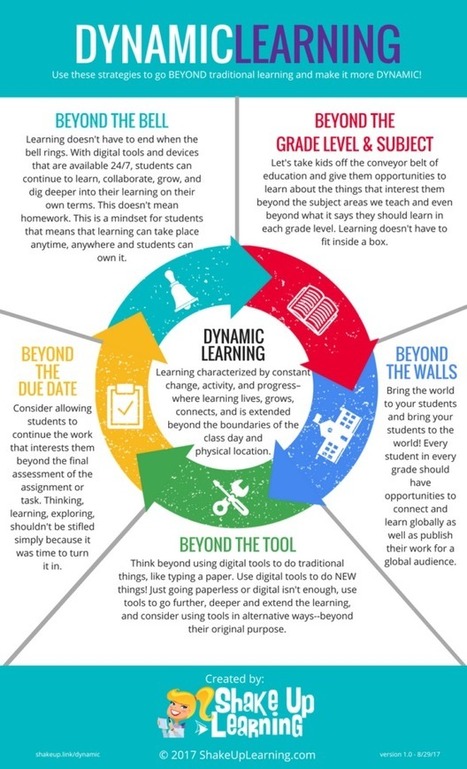Does your classroom offer one-and-done types of learning activities, or does the learning grow, inspire, and evolve throughout the year and beyond? With tools like G Suite for Education that are available 24/7, the learning doesn’t have to stop when the bell rings at the end of class, or when the worksheet is turned in, or even when the school year ends. The learning takes on a life of its own; it becomes dynamic.
This concept alone should change the way you think about learning in general and change the way you facilitate learning in the classroom.
Learn more / En savoir plus / Mehr erfahren:
http://www.scoop.it/t/21st-century-learning-and-teaching/?&tag=Social-Learning
http://www.scoop.it/t/21st-century-learning-and-teaching/?&tag=makerspace
https://gustmees.wordpress.com/?s=maker
https://gustmees.wordpress.com/2014/10/03/design-the-learning-of-your-learners-students-ideas/
https://gustmees.wordpress.com/2014/07/29/practice-creativity-examples-with-thinglink/
https://gustmees.wordpress.com/2014/03/29/practice-learning-to-learn/
http://www.scoop.it/t/21st-century-learning-and-teaching/?&tag=Social-Learning
https://gustmees.wordpress.com/2016/07/13/coaching-instead-of-teaching-in-modern-education/
https://gustmees.wordpress.com/2014/07/10/education-collaboration-and-coaching-the-future/
https://gustmees.wordpress.com/2013/04/25/learn-every-day-a-bit-with-curation/
Via Gust MEES, Dean J. Fusto



 Your new post is loading...
Your new post is loading...













